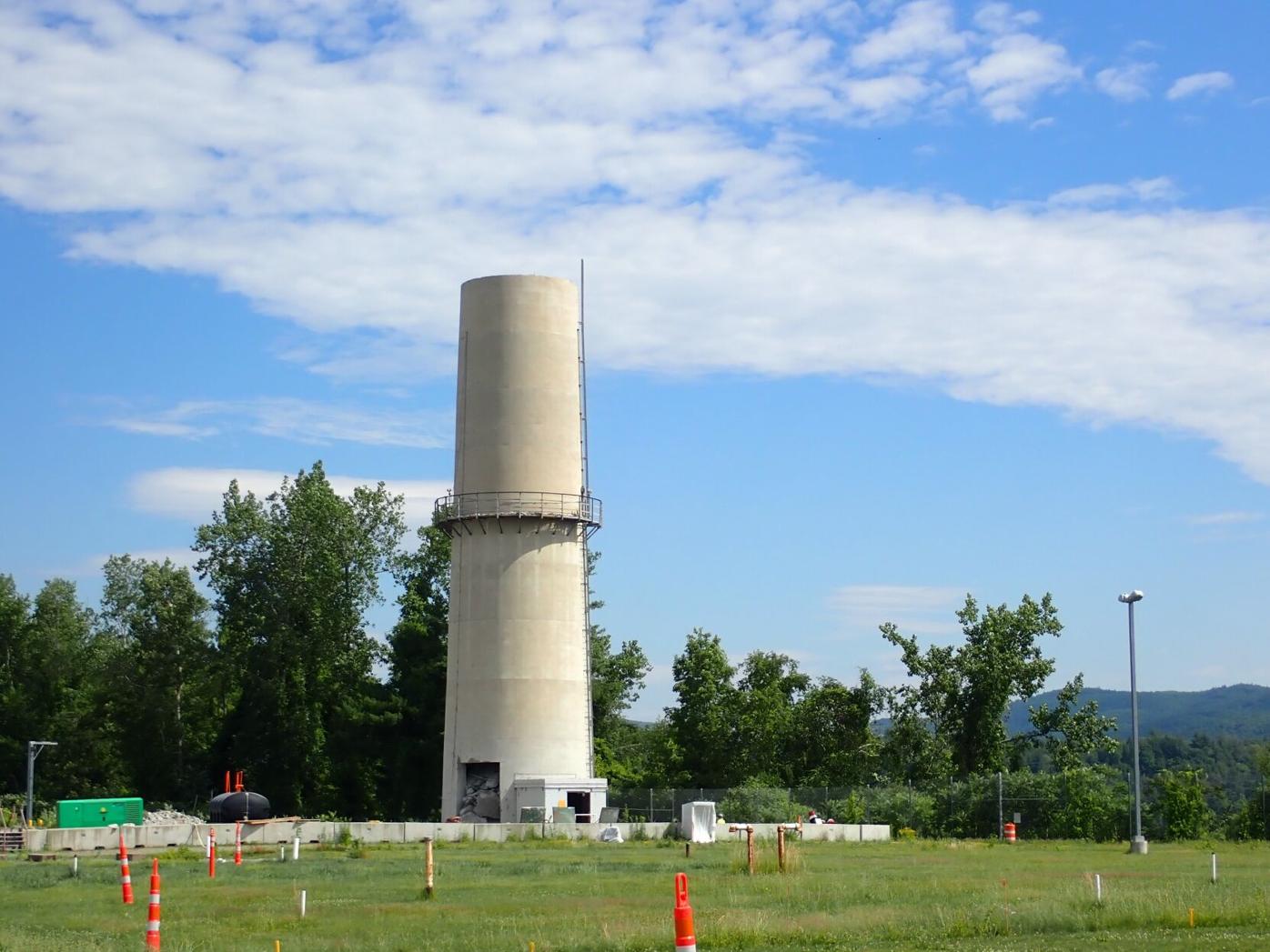“The Town of Vernon supports a repository site or sites under the following conditions: Approval by the Federal Government, DOE, Congress, and the NRC. Deemed/tested safe by engineering and environmental experts by known and reasonable standards. Received approval/consent from the state, territory, town, or country chosen to be the repository/repositories. This includes one single repository, multiple repositories, or interim storage,”

Photo provided by NorthStar
BRATTLEBORO — The 117th Congress has introduced few bills this session dealing with nuclear power and nuclear waste, staffers for Vermont’s congressional delegation told a Vermont committee studying federal nuclear waste policies Monday.
The committee, an arm of the Vermont Nuclear Decommissioning Citizens Advisory Panel, is investigating whether it should take a stand on what happens to the high-level radioactive waste currently stored at the Vermont Yankee site in about four-dozen stainless steel and concrete casks.
Two companies, including the parent company of NorthStar Decommissioning, which owns the Vermont Yankee plant and is demolishing it, want to build interim storage facilities for high-level waste — one in west Texas and the other in New Mexico. Interim storage would hold radioactive waste until a federal depository is built.
The two congressional staffers who met with the committee, Haley Pero, from Sen. Bernie Sanders, I-Vt., office, and Thea Wurzburg of Rep. Peter Welch, D-Vt.’s office, both said they have seen little interest from the Biden administration in taking on the difficult issues of nuclear power and its nuclear waste.
The administration of former President Donald Trump tried to revive funding for the Yucca Mountain high-level radioactive waste facility in Nevada, but made no progress, Pero said. Not as many bills have come up this year, Pero said.
Congress’ attention is elsewhere, the two staffers said.
The Vermont panel last year backed off an earlier endorsement of interim waste storage, like the facilities proposed by NorthStar in Texas and Holtec International in New Mexico.
The two companies have applied to the Nuclear Regulatory Commission for permission to build such facilities.
But Pero said the last time she checked with the Congressional Research Office, it was not clear that such facilities are allowed under current law. Opposition to such facilities focus on transportation issues — moving millions of spent fuel rods across the country to a facility, and then on to a permanent facility many years later.
As local resident Ann Darling, a member of Citizens Awareness Network, pointed out, Vermont Yankee already had an accident with a radioactive waste transportation cannister, but luckily it was empty.
And, according to Lissa Weinmann, the chairwoman of the committee, there is local opposition in Texas to siting a high-level radioactive waste facility in the state.
NorthStar’s corporate parent, Waste Control Specialists, wants to build the high-level facility next to its current low-level radioactive waste facility that is being used by NorthStar for disposal as it demolishes Vermont Yankee.
Both Pero and Wurzburg said they expected bills helping communities deal with “stranded waste” (waste left behind after a nuclear reactor closes, like Vernon) — would be reintroduced this fall. Those bills would give the communities an annual payment from the federal government for hosting the waste facility in their borders, based on the amount of waste. The bills so far haven’t gained congressional approval.
In Vernon’s case, all 42 years worth of spent nuclear fuel rods are stored at a secure facility located on the grounds of Vermont Yankee, just north of the reactor building.
Vernon committee member Madeline Arms told the committee that Vernon would only endorse an interim waste storage facility if it is approved by federal regulators, such as the NRC and the Department of Energy. She called the nuclear waste issue “a burning coal” that no one wanted to touch.
Arms said the town is well aware that the federal government has created the local storage problem by not creating a federal nuclear waste depository, which it is required to do by law.
“We feel it’s OK where it is right now,” Arms said of the NorthStar storage facility. She said that the spent fuel cannisters did not need to be moved to a higher location, as one person has suggested. “Vernon is feeling very safe,” she said.
She said in an interview after the meeting that she has discussed the issue with the Vernon Select Board recently, and they endorsed the statement she read to the committee.
“’We approve of the way it’s being maintained,’” she said.
“The Town of Vernon acknowledges and understands the responsibility and risk of housing the fuel until an approved repository/repositories are selected and fuel can be transported off site.”
The Town of Vernon supports a repository site or sites under the following conditions:
Approval by the Federal Government, DOE, Congress, and the NRC. Deemed/tested safe by engineering and environmental experts by known and reasonable standards. Received approval/consent from the state, territory, town, or country chosen to be the repository/repositories. This includes one single repository, multiple repositories, or interim storage,” she read.
It’s helpful to know where Vernon stands,” Weinmann said.
